The Academu of Ancient Music, Christopger Hogwood - Mozart: Mass in C minor, K.427 (1990)
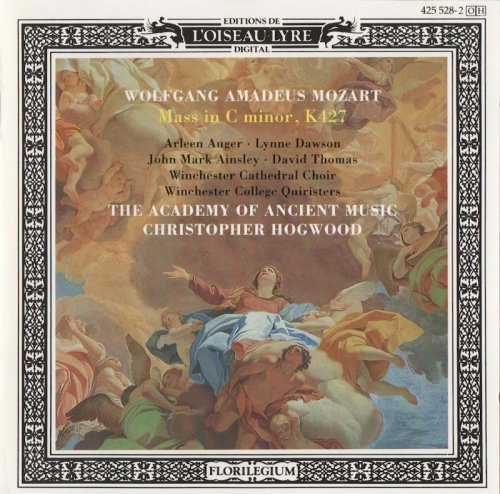
Artist: The Academu of Ancient Music, Christopger Hogwood
Title: Mozart: Mass in C minor, K.427
Year Of Release: 1990
Label: L'Oiseau-Lyre
Genre: Classical
Quality: FLAC (image+.cue,log,scans)
Total Time: 51:25
Total Size: 286 Mb
WebSite: Album Preview
Tracklist: Title: Mozart: Mass in C minor, K.427
Year Of Release: 1990
Label: L'Oiseau-Lyre
Genre: Classical
Quality: FLAC (image+.cue,log,scans)
Total Time: 51:25
Total Size: 286 Mb
WebSite: Album Preview
01. I. Kyrie (7:00)
02. II. Gloria - Gloria in excelsis Deo (2:19)
03. Laudamus te (4:41)
04. Gratias agimus tibi (1:14)
05. Domine Deus (2:42)
06. Qui tollis peccata mundi (4:50)
07. Quoniam tu solus Sanctus (3:49)
08. Jesu Christe - Cum Sancto Spiritu (4:25)
09. III. Credo - Credo in unum Deum (3:07)
10. Et Incarnatus Est (7:44)
11. IV. Sanctus - Sanctus - Osanna (3:43)
12. Benedictus - Osanna (5:51)
Performers:
Arleen Auger - soprano
Lynne Dawson - soprano
John Mark Ainsley - tenor
David Thomas - bass
Winchester Cathedral Choir
Winchester College Quiristers
The Academu of Ancient Music [on period instruments]
Christopger Hogwood – conductor
Sometimes I have felt hesitant about using the word 'interpretation' for his performances, which have been apt to seem objective and lacking in emotional commitment. However, the grandeur and the elevated quality of the ''noble torso'' that is all Mozart wrote of the C minor Mass have apparently touched something deeper in Hogwood, and though the performance still bears the imprints of his approach it carries more expressive weight than usual. It begins with a steady and powerful Kyrie, monumental in feeling, dark in tone. The big choruses of the Gloria have plenty of energy, where that is called for—as in the ''Gloria in excelsis'', which has a fine drive to its rhythms, though it is not fast, and the closing ''Cum sancto spiritu'' fugue, excellently sustained—and sufficient of the sombre, too, as in the ''Qui tollis''. The Credo is lively, perhaps a shade pushed; the ''Osanna'' has a fine, energetic gait.
Hogwood uses a boys' choir, rightly I think, not simply because that is what Mozart took for granted but because the freshness and ring of boys' voices, and the extra clarity they impart to the textures, bring nothing but advantage. There is a splendid team of soloists, headed by Arleen Auger in excellent voice, full, warm and glowing—a tasteful, unaffected singer, she is surely the leading soprano in this repertory today. The broad, open phrasing in the ''Laudamus te'', with the leaps true and the semiquaver runs perfectly placed, is a delight; and the interplay of solo voices, with Lynne Dawson's more grainy one in the ''Domine Deus'', and in the ''Quoniam'' trio with the admirable tenor of John Mark Ainsley too, is always pleasing. The big solo number here, of course, is the ''Et incarnatus'', and here the music is somewhat different from usual because Hogwood uses a new edition by Richard Maunder which fills out the skeletal version left by Mozart rather more fully than do existing texts. Maunder's added horn parts take a little getting used to, but by and large are pretty persuasive; his sustained string writing at some points seems to me more questionable. Auger's singing, in any case, is beautiful; it is traditional to call this music 'operatic', but that is to my mind based on a misapprehension of style, and her reading of it seems to me deely expressive without in any way transgressing the proper limits of sacred music.
Hogwood uses a boys' choir, rightly I think, not simply because that is what Mozart took for granted but because the freshness and ring of boys' voices, and the extra clarity they impart to the textures, bring nothing but advantage. There is a splendid team of soloists, headed by Arleen Auger in excellent voice, full, warm and glowing—a tasteful, unaffected singer, she is surely the leading soprano in this repertory today. The broad, open phrasing in the ''Laudamus te'', with the leaps true and the semiquaver runs perfectly placed, is a delight; and the interplay of solo voices, with Lynne Dawson's more grainy one in the ''Domine Deus'', and in the ''Quoniam'' trio with the admirable tenor of John Mark Ainsley too, is always pleasing. The big solo number here, of course, is the ''Et incarnatus'', and here the music is somewhat different from usual because Hogwood uses a new edition by Richard Maunder which fills out the skeletal version left by Mozart rather more fully than do existing texts. Maunder's added horn parts take a little getting used to, but by and large are pretty persuasive; his sustained string writing at some points seems to me more questionable. Auger's singing, in any case, is beautiful; it is traditional to call this music 'operatic', but that is to my mind based on a misapprehension of style, and her reading of it seems to me deely expressive without in any way transgressing the proper limits of sacred music.


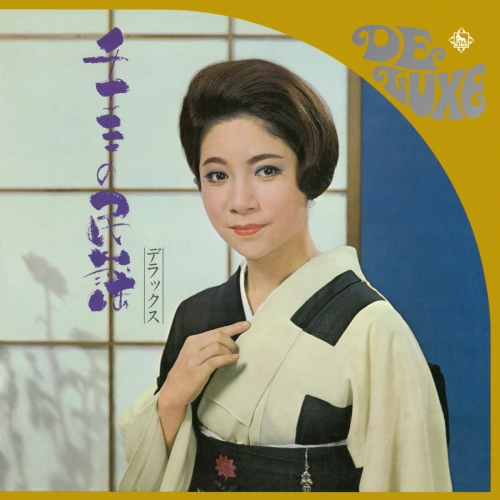
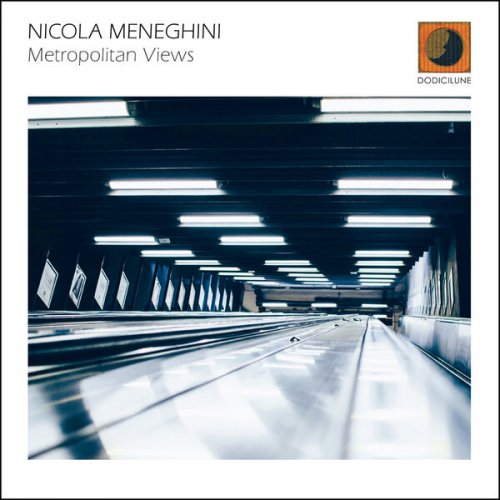
![Various Artists - Lost Tracks: Accra to Addis (2026) [Hi-Res] Various Artists - Lost Tracks: Accra to Addis (2026) [Hi-Res]](https://img.israbox.com/img/2026-02/26/lqvyrzr9f9yed5j0r3zv7c1r6.jpg)
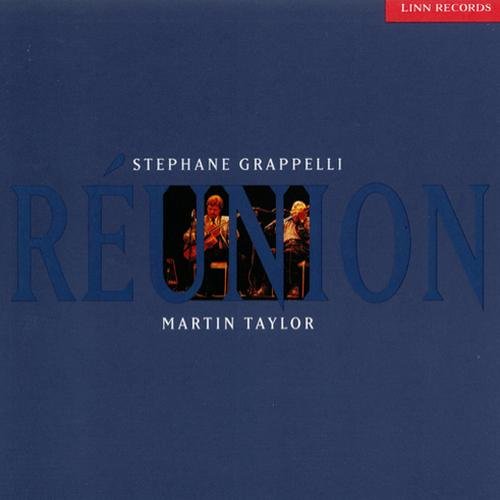
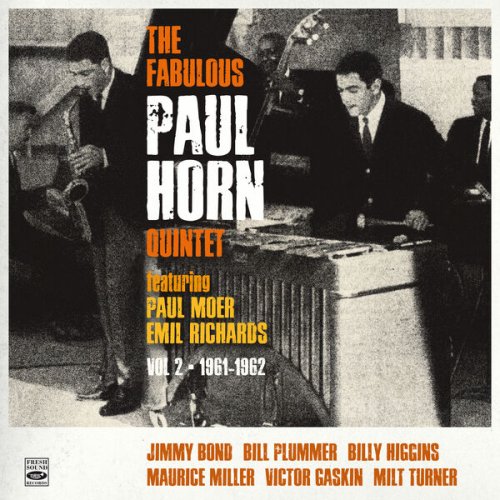
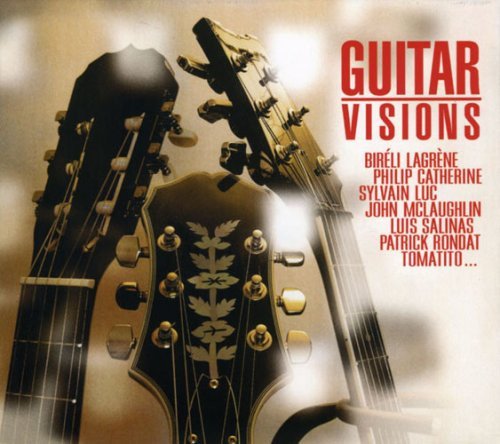
![Mehmet Ali Sanlikol - The Electric Oud Man Speaks and You Listen... (2026) [Hi-Res] Mehmet Ali Sanlikol - The Electric Oud Man Speaks and You Listen... (2026) [Hi-Res]](https://img.israbox.com/img/2026-02/28/0areq907i6p8nj96306jai1a0.jpg)